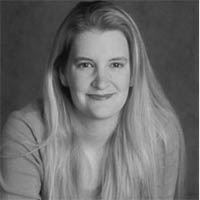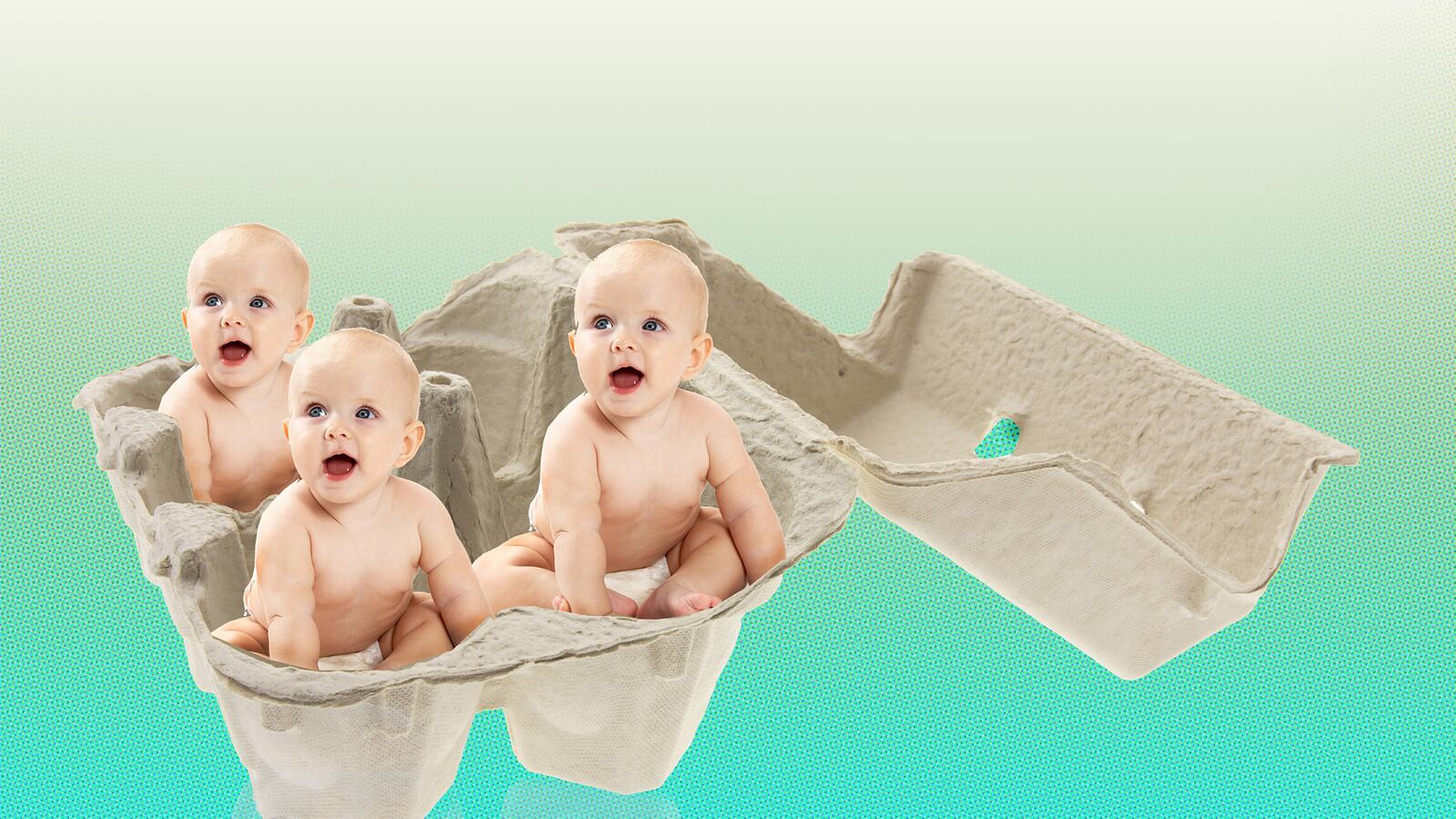Julia Indichova had her first child at age 40 and started trying to get pregnant again at 42. When months went by with no pregnancy, she had her blood tested for FSH, a common hormonal marker. As Indichova relates in her book Inconceivable, her FSH was so high that the drugs used to stimulate the ovaries during fertility treatment would not work. Four fertility doctors told her there was nothing they could do.
That was in the early 1990s. Remarkably, not much has changed in the 20 years since—most fertility doctors would give Indichova exactly the same answer today. Women are born with all of the eggs they will ever have, goes the accepted dogma. Once your egg supply runs low and/or your eggs age, you won’t be able to get pregnant anymore even with high-tech interventions such as IVF. Doctors routinely tell women with no or few eggs left and women over 45 that a donor egg is their only viable option. IVF success rates for women 43 and older hover around 5 percent; some fortunate women (including Indichova) still get pregnant on their own at this age, but most are not so lucky.
The female biological clock has been, so far, nearly impossible to beat.
But a new fertility treatment called OvaPrime might change all that. In 2004, biologist Jonathan Tilly and his colleagues discovered the existence of egg precursor cells (EggPCs) in the outer cortex of the ovaries of mice. These cells, they later showed, could grow into mature eggs that became fertilized and then healthy baby mice. In 2012, his team found these cells in humans and showed they could be cultivated into mature eggs. In other words, the idea that women are born with all of the eggs they will ever have is wrong.
OvaPrime, which the company OvaScience plans to introduce internationally by the end of the year, will extract a woman’s EggPC cells and then reintroduce them into the central part of the ovary, where they can grow into mature eggs. “We hope this procedure will bring the woman’s biology back in time and will reset the clock in her ovary,” said Dr. Arthur Tzianabos, president and chief science officer for OvaScience. That should help women produce more eggs during an IVF cycle and increase the chance for success.
Of course, producing more eggs doesn’t do any good if they are chromosomally abnormal and thus can’t turn into a healthy baby. Only one out of three eggs becomes a 5-day embryo after IVF, and by the time a woman is 39 years old, less than half of 5-day embryos are chromosomally normal. By 44, only 12 percent are.
That’s where OvaPrime might be a complete game-changer. EggPCs are also known as egg stem cells, and stem cells are the youngest cells in the body. According to Dr. Tzianabos, EggPCs have not aged at the same rate as the eggs in the main part of the ovary: They haven’t been exposed to the hormones and blood flow that regular eggs have, and their mitochondria have strikingly fewer mutations and thus produce more energy.
That might be the key for producing more chromosomally normal eggs. In the days before ovulation, the chosen (“dominant”) egg goes through a cell division process known as meiosis. That process takes a lot of energy—energy that older eggs may not have, resulting in an egg with the wrong number of chromosomes. Mitochondria are the energy providers of the cell, so better mitochondria should mean a better meiosis, and thus a higher chance of a chromosomally normal egg.
OvaScience has already introduced a procedure called Augment, in which regular eggs retrieved with IVF are injected with mitochondria from EggPCs. In a group of women who had already failed IVF—sometimes multiple times—26 percent of women 40 and under achieved a viable pregnancy with Augment treatment. The results for those 41 or older were not as good, with only 1 out of 19 (5.3 percent) achieving a lasting pregnancy after Augment.
That could be because Augment is done after egg retrieval, when most of meiosis has already occurred. OvaPrime, on the other hand, uses EggPCs from the beginning. With their better mitochondria, these eggs should be more likely to divide normally. “Then it might be possible for someone who is 48 to get pregnant,” Dr. Robert Casper, medical director for the T-CART fertility clinic in Toronto, told Fusion.net.
If that is true, OvaPrime could mean the end of the biological clock for women. Thousands of women who had given up hope would be able to have their own genetic child. Women wouldn’t need to freeze their eggs anymore, because they would always have a source of young eggs in their ovaries. As long as they could afford OvaPrime, women could have the same freedom that men already enjoy to marry later, build their careers before becoming a parent, or have children in a later relationship with a younger partner.
That is the hypothesis, but much remains to be done. No one has yet tried to fertilize a human EggPC; that won’t happen until OvaPrime is introduced on a trial basis later this year. That also means there’s no data yet on whether the eggs really are more likely to be chromosomally normal, or how many extra eggs women will be able to develop. OvaPrime is not particularly convenient: It requires at least two procedures under sedation and will not be available in the United States (the closest likely location: Toronto). OvaScience has not yet released a price for OvaPrime, but Augment adds $25,000 to the already steep cost of IVF (often $15,000 or more per cycle).
Yet, for women who have been told that a donor egg is their only option to bear a child, OvaPrime could be the last great hope that could fulfill their dreams.
“I am as excited about this from a scientific basis as anything I’ve ever done,” said Dr. Tzianabos. “This is outstanding in its potential to transform into happy endings for women.”
With so many women struggling with age-related infertility, those happy endings can’t come soon enough.




